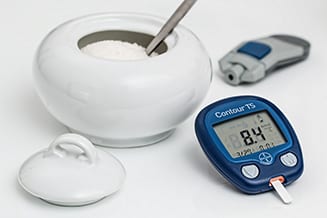
- Home cleaning products may increase risk of children becoming overweight by altering their microbiome
- Mom’s microbiome during pregnancy linked to child’s autism risk
- People with type 2 diabetes may reverse or reduce their insulin use with intermittent fasting
- Children with developmental disorders are more likely to be overweight or obese
- Short questionnaire may help identify digestive issues in children with autism
Canadian scientists analyzed fecal samples from 757 3- to 4-month-old infants to assess their gut flora. They also recorded the children’s weight at ages 1 and 3 years. The infants’ mothers self-reported their use of disinfectants, detergents, and eco-friendly products at home.
What the research found:
- Household cleaning products adversely affected the children’s gut microbiome irrespective of birth mode, intake of antibiotics, or breastfeeding.
- Regular use of disinfectants increased Lachnospiraceae species by 1.3 times which, in turn, increased the risks of overweight at ages 1 and 3.
- Haemophilus bacteria levels dropped with daily use of disinfectants and regular use of household wipe products.
- The children whose mothers used eco-friendly products daily had lower levels of Enterobacteriaceae. However, the scientists speculated that the mothers who used these products probably led a healthier lifestyle during pregnancy and transmitted fewer Enterobacteriaceae to their babies during vaginal delivery.
Practical Tip: Since, common household cleaners can cause children to become overweight by disrupting the bacteria in the body, avoid these cleaners. Instead switch to eco-friendly products; even simply baking soda and vinegar can often do the trick. It’s easy to do and it will make a big difference for you and your family.
Mom’s microbiome during pregnancy linked to child’s autism risk
Cutting-edge research suggests that the mother’s gut health during pregnancy plays a critical role in determining the child’s risk of developing ASD.
The researchers hypothesized that, in mice, an immune reaction to interleukin-17a (IL-17a), a molecule produced by the immune system, could trigger ASD-like behaviors.
To test their hypothesis, the team used Jax and Tac mice from two different laboratories. Unlike the Jax mice, the Tac mice had gut microbes that made them susceptible to an IL-17a inflammatory reaction.
Both groups were exposed to a virus designed to create an immune response. Only the Tac mice (the ones susceptible to inflammation) had pups that developed ASD-like behaviors.
To prevent an inflammatory response, the researchers then artificially blocked the IL-17a molecule in the Tac mice. The pups born did not show ASD-like behavior.
Finally, the researchers exposed the Jax mice to the gut flora of Tac mice (making them more susceptible to inflammation). Interestingly, they found that pups born after this intervention showed ASD-like behavior.
Practical tip: Although these findings may not be applicable to humans, pregnant women and those planning to conceive could opt for a gut-friendly (and microbe-friendly) diet and lifestyle. Probiotics (or fecal transplants, when medically necessary) may also positively influence the mother’s microbiome.
People with type 2 diabetes may reverse or reduce their insulin use with intermittent fasting
In a new study, Suleiman Furmli, MD, and his team reported that, under medical supervision, therapeutic 24-hour fasting regimens can help reverse type 2 diabetes. The fasting interventions could also reduce the use of medications in patients with type 2 diabetes and minimize surgical interventions in this population.
This small study involved 3 male patients aged between 40 and 67. The 3 participants also had high blood pressure and high cholesterol levels in addition to type 2 diabetes and were taking at least 70 units of insulin daily at the beginning of the study.
Two of the patients fasted three times weekly for 7 months. After the intervention, one patient discontinued insulin and metformin use while the other stopped his fixed-dose insulin mix.
The other patient fasted on alternating days for 11 months and was able to eliminate metformin and pre-mixed insulin.
HbA1c levels improved for all 3 participants who also lost weight and inches off their waists.
Children with developmental disorders are more likely to be overweight or obese
A new study reveals that children with developmental delays, including ASD, can be up to 50% more likely to be overweight or obese compared to the general population.
This study involved 2,500 children aged two to five years old and included:
- 668 children with ASD
- 914 children with developmental delays or disorders
- 884 children from the general population (the control group)
Compared to the control group, children with ASD or other developmental delays were 1.57 times and 1.38 times, respectively, more likely to be overweight or obese.
Children with severe ASD were 1.7 times more likely to be classified as overweight or obese compared to those with mild symptoms.
The authors note that diet and other medical conditions (such as digestive issues, poor sleep quality, medication-associated side effects, genetic disorders, and hormonal imbalances) may contribute to weight gain in children with ASD.
Note: While this study did not look at diet, in my experience it’s a gluten-free, casein-free diet may be able to prevent excessive weight gain in children with autism. You see, children with ASD often react adversely to gluten-containing grains and dairy products since consumption of these foods promotes the production of gluteomorphins and casomorphins, respectively. These opioid-like molecules are addictive and can trigger overeating. Moreover, gluten and dairy are pro-inflammatory and can also perpetuate weight gain. Research would be needed to see if this was one of the contributing factors, and/or whether as GFCF diet could address excess weight in children.
Short questionnaire may help identify digestive issues in children with autism
Digestive disorders are four times more common in children with autism compared to the general population. Unfortunately, children with ASD often have issues communicating digestive distress, and pinpointing the location of their discomfort, to their parents or primary care providers.
As such, GI disorders can be tricky to identify in this population.
To remedy to this, a group of pediatric gastroenterologists and psychiatrists created a questionnaire that relies minimally on the child’s ability to report or localize pain.
In this study, 131 parents of children with autism were asked a series of question designed to assess symptoms of three common digestive issues, namely constipation, diarrhea, and reflux disease.
Symptoms included:
- Gagging during meals
- Applying pressure to the abdomen
- Arching the back
The researchers then asked pediatric gastroenterologists, who were unaware of the parents’ answers, to assess the children.
The data collected helped the researchers identify 17 questions that were able to correctly identify 84% of kids with GI disorders.
Because many children with autism are nonverbal and parents and doctors are often unaware that they have digestive distress. This will help healthcare practitioners identify gastrointestinal issues, so the child can get needed support.







